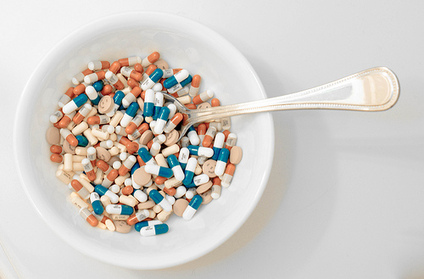Three experts discuss conflicting interpretations of the same data
17 million Americans are currently taking some form of antidepressants.
1 in 10 Americans suffers from some form of depression.
$11.3 billion dollars is spent on antidepressants per year.
But what if placebos are just as effective?
A recent 60 Minutes Episode covering the question has sparked controversy across the nation. But researchers from Harvard, Brown, Yale, and other prestigious medical schools have been presenting scientific evidence that placebos are just as effective as antidepressants—that they both actually work—for years.
Irving Kirsch, the associate director of the Placebo Studies Program at Harvard Medical School, appeared on the recent 60 Minutes episode with reporter Lesley Stahl. He wrote a book published in 2010 on placebos, but the claims Kirsch makes that are suddenly considered controversial include: “The difference between the effect of a placebo and the effect of an antidepressant is minimal for most people.”
The Progam in Placebo Studies at Harvard Medical School’s website says:
For many years, the placebo effect was considered to be no more than a nuisance variable that needed to be controlled in clinical trials. Only recently have researchers redefined it as the key to understanding the healing that arises from medical ritual, the context of treatment, the patient-provider relationship and the power of imagination, trust and hope.
The recent redefinition makes Kirsch’s most interesting point: that both a placebo and an antidepressant are effective. He says, “People get better when they take the drug. But it’s not the chemical ingredients of the drug that are making them better. It’s largely the placebo effect … We even looked at drugs that are not considered antidepressants: tranquilizers, barbiturates. And do you know what? They had the same effect as the antidepressants.”
There is a caveat: “If they were mildly or moderately depressed, you don’t see any real difference at all. The only place where you get a clinically meaningful difference is at these very extreme levels of depression.”
Kirsch studied drug effectiveness data from the drug companies’ clinical trials that had been published in medical journals as well as data that weren’t published but had been submitted to the FDA, which he got through the Freedom of Information Act.
Two researchers look at the same data with different conclusions
Similarly, TIME magazine recently profiled a new growth-mixture modeling statistical technique to track how individual patients improved or worsened over time—a method which eliminates the “average” and allows for unique cases. Dr. John Krystal at Yale University School of Medicine reanalyzed data from seven clinical trials involving 2,515 patients and found that roughly three-quarters of patients did better on medication than on a placebo.
However, just under a quarter of patients did not respond well to drug treatment and in fact did worse on antidepressants than did patients who were given a placebo.
“This has enormous implications for understanding the limits of the effectiveness of our current medications,” Krystal told TIME magazine. “These data really caution against the demonization of antidepressants as merely placebo, but they do raise a concern that some people are better off on placebo than on the antidepressant that they’re getting.”
Could depression theory be to blame?
Dr. Walter Brown is a clinical professor of psychiatry at Brown University’s Medical School who agrees that patients get virtually no benefit from the chemicals in antidepressants. He questions the theory that depression is caused by a deficiency in the brain chemical called serotonin—which suggests that the chemicals in the drugs could be designed to combat something that isn’t actually the problem. Brown told 60 Minutes, “The experts in the field now believe that that theory is a gross oversimplification and probably is not correct.”
What to Do
With all of the conflicting and confusing statistical data, what can work to combat mild depression? Kirsch offers two suggestions: exercise and talk therapy. Both are proven effective methods and can be initiated with little to no cost.
Image: ![]() Some rights reserved by Carsten Schertzer
Some rights reserved by Carsten Schertzer

